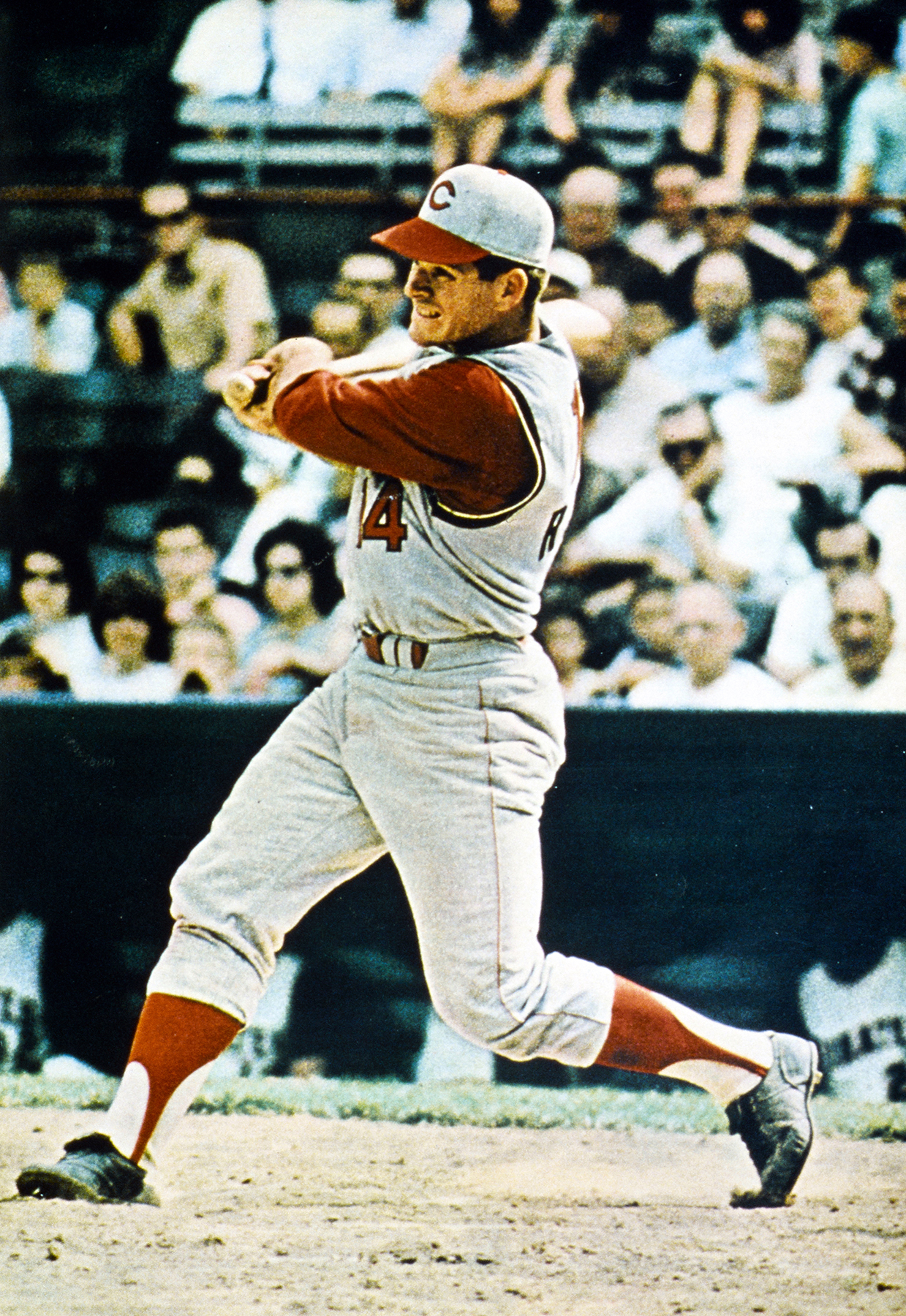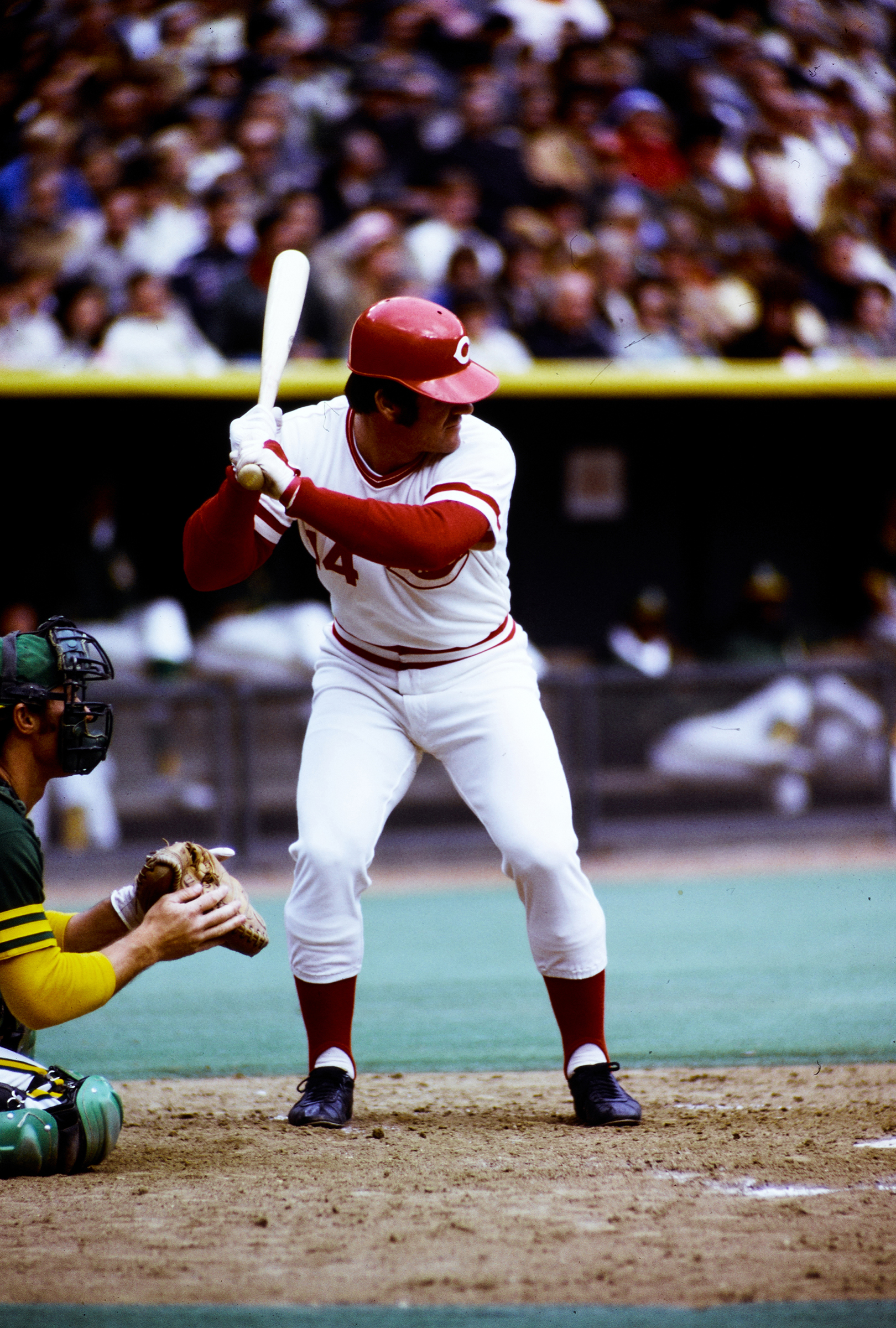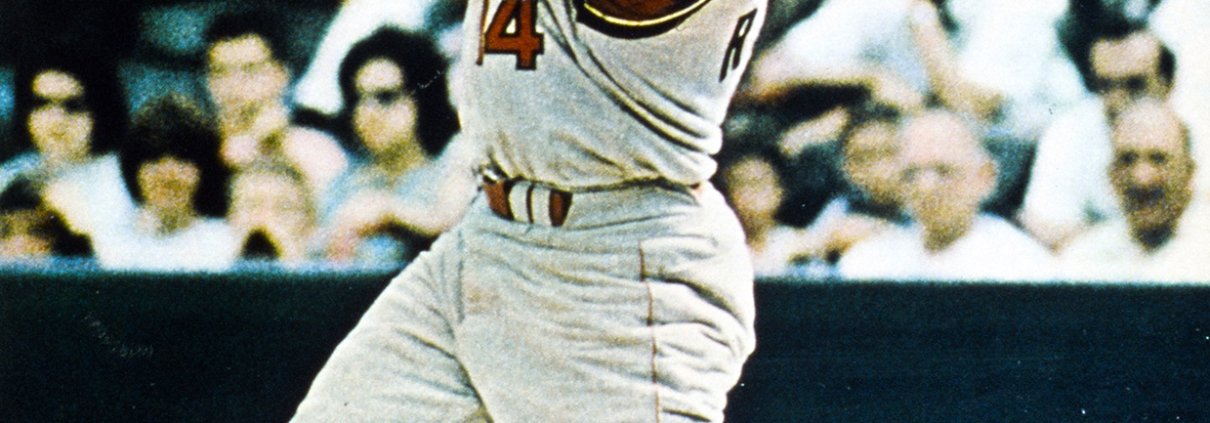In Memoriam: Pete Rose
 Pete Rose, Major League Baseball’s career hits leader who was permanently banned after he was found to have bet on games involving the Cincinnati Reds, died at the age of 83 on September 30, 2024.
Pete Rose, Major League Baseball’s career hits leader who was permanently banned after he was found to have bet on games involving the Cincinnati Reds, died at the age of 83 on September 30, 2024.
As Andy Sturgill wrote for the SABR BioProject, “His skill, reckless abandon, and desire to win endeared him to millions of baseball fans, but that same hard edge combined with personal missteps to give his detractors more than enough fodder to tear him down. Through baserunning and bravado, girlfriends and gambling, one thing was indisputable: Pete Rose was an outstanding baseball player.”
As of the 2024 season, nearly four decades after he retired, Rose remained MLB’s all-time leader in hits, games played, at-bats, plate appearances, singles, and times on base. He was second in doubles and sixth in runs scored, and finished with a lifetime .303 batting average. He won a National League MVP, a World Series MVP, a Silver Slugger award, Rookie of the Year, and two Gold Gloves. His teams won six pennants and three World Series. He was selected to 17 NL All-Star teams — at five different positions in the field.
During his playing career, Rose was arguably the most popular player in baseball, embracing a once-derisive nickname bestowed on him by Whitey Ford, who called him “Charlie Hustle” after he sprinted to first base following a walk in a meaningless spring training game. Rose once said, “I didn’t get to the majors on God-given ability. I got there on hustle and I have had to hustle to stay.” The switch-hitting superstar was celebrated by many fans for his high-flying headfirst dives, with no more play more emblematic of his style than his violent collision with catcher Ray Fosse to score the game-winning run in extra innings of the 1970 All-Star Game.
Born on April 14, 1941, and raised on the west side of Cincinnati — the son of a semipro football player who played with the same reckless determination that became his son’s hallmark — Peter Edward Rose made an instant impact on his hometown Reds after he made his major-league debut in 1963. As a second baseman he won Rookie of the Year honors in his first season, then switched to the outfield and led the NL in batting in 1968 and 1969.
He was a key cog in Cincinnati’s Big Red Machine dynasty of the 1970s, leading his hometown Reds to four NL pennants and back-to-back World Series titles in 1975 and 1976. Manager Sparky Anderson’s decision to shift Rose from right field to third base shifted the Reds into a new gear and was said to be the most pivotal moment of their first championship season.
Joe Morgan, Rose’s teammate with both the Reds and Phillies, later wrote, “Pete played the game, always, for keeps. Every game was the seventh game of the World Series. He had this unbelievable capacity to literally roar through 162 games as if they were each that one single game.”
 Rose continued to rack up accolades and accomplishments during the second half of his career, recording an NL-record 44-game hitting streak in 1978, winning another World Series with the Philadelphia Phillies in 1980, and notching his 4,000th career hit with the Montreal Expos in 1984. In September 1985, Rose was the toast of baseball when the 45-year-old Reds player-manager tied and then surpassed Ty Cobb’s longstanding record for career hits. Rose finished his own major-league career with 4,256 hits, a mark that has never been approached since.
Rose continued to rack up accolades and accomplishments during the second half of his career, recording an NL-record 44-game hitting streak in 1978, winning another World Series with the Philadelphia Phillies in 1980, and notching his 4,000th career hit with the Montreal Expos in 1984. In September 1985, Rose was the toast of baseball when the 45-year-old Reds player-manager tied and then surpassed Ty Cobb’s longstanding record for career hits. Rose finished his own major-league career with 4,256 hits, a mark that has never been approached since.
Rose’s reputation all came crashing down a few years later. In 1989, allegations arose that the Reds manager had bet on major-league games in violation of the sport’s most sacred rule. Commissioner A. Bartlett Giamatti retained John Dowd to investigate the matter, and the Dowd Report was presented to Giamatti in May. The report’s most stirring conclusion was that Rose had in fact bet on baseball during his tenure as Reds manager. In late August, Rose and Giamatti agreed to a settlement in which Rose would be declared permanently ineligible from baseball, with the ability to ask for reinstatement after one year. Rose steadfastly maintained that he had not bet on baseball until finally admitting to the truth in a 2004 autobiography.
Despite his many on-field accomplishments, Rose was denied induction into the National Baseball Hall of Fame during his lifetime. For many years, he attempted to disrupt Induction Weekend festivities in Cooperstown by staging his own, private autograph session at a memorabilia store just a few blocks away from the museum.
Being placed on the permanently-ineligible list barred Rose from attending official ceremonies, with the exception of the All-Century Team presentation during the 1999 World Series. His number 14, which certainly would have been retired by the Reds, has been issued by the team only once since his banishment, and that to his son Pete Rose Jr.
Controversy continued to follow him off the field. He pleaded guilty to charges related to income-tax evasion and served five months in a federal penitentiary. In 2016, an unidentified woman alleged that in the 1970s she engaged in a sexual relationship with Rose before she turned 16 years old, an allegation that amounts to statutory rape in most states. Rose filed a defamation suit that a judge dismissed after both parties reached an undisclosed settlement.
Into his 70s and 80s, he was still a fixture at baseball card and autograph shows. He spent more than 20 hours a week greeting fans and signing autographs at casinos in Las Vegas. So long as the individual paid the autograph fee, Rose would sign anything, including the Dowd Report and his mug shot from his tax-evasion charges. It was all part of the hustle.
(Photos: SABR-Rucker Archive)
Originally published: September 30, 2024. Last Updated: September 30, 2024.


